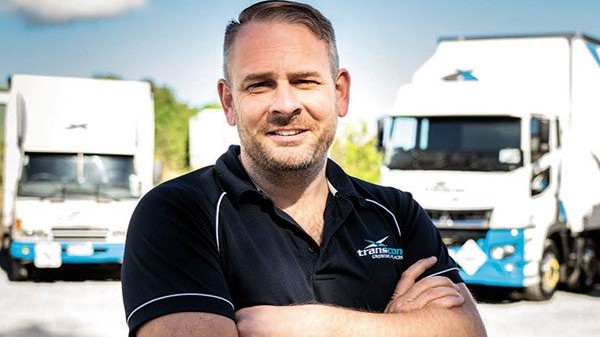Musings of a Fleet Operator

Whoop, whoop! At least one person reads this column (potentially)!
After my rant last month about the state of a crucial Armco barrier on an already-delicate two-way bridge on SH1 just north of Auckland, I’m pleased to advise that one of two things has happened… Either there’s been a magical stroke of luck within the local roading authority, or I have real-life proof that at least one person has picked up the magazine and read my article.
Either way, within 24 hours of the magazine hitting the shelves, I’d seen first-hand a robust and (New Zealand) permanent solution to help me sleep a little easier at night; a row of eight orange cones.
Using the above to segue into bureaucracy and the powers that be, I’m sure I’m not alone in awaiting our finance minister’s next update concerning the ongoing application of the fuel tax/ RUC temporary reductions, scheduled for review and update in mid-January. Current industry intel would suggest that we’ll see a resumption to ‘normal’ levels on both fronts from January (albeit with the three-month or so lag of applying the RUC levels we saw at the ‘front end’). This reality leaves me completely perplexed, considering the Prime Minister’s more recent acknowledgement that we are indeed operating within a cost-of-living crisis.

What dumbfounds me in all this is the ongoing disconnect between reducing costs at the source versus redistributing at the other end. The reality is that those fuel cost increases (or return to normal, depending on your take on it all) will hit all and sundry, coming under the core cost-of-living banner and adding further insult to the current inflation injury.
Sticking with the topic of fuel, and in a bid to reel in my current rant, I’ve spent a fair bit of time thinking about the ever-increasing emission-reductions dialogue and the role that alternative fuel sources will play in our future world. This was reinforced for me at a recent awards event for the Blake Trust (as in Sir Peter Blake, not yours truly) and the changing reality that’s all around us. I should probably add that I’m far from an eco-warrior or greenie. Yet, I certainly am interested in the future shape and form of our planet for myself and my children and the overall economic and commercial environment in which we’ll be transacting.
If I were to gauge how imminent the need for change is, the minimal number of alternative-fuel heavy vehicles currently within the national fleet is probably not he gauge I’d use. Current vehicle supply, cost, and the general ‘fit for purpose’ of the existing offerings all make it very challenging for their mass uptake any time soon. Yet, the reality is, like it or not, within the next 10 years, our industry will face immense change on the fuels and energy front, and we won’t be able to hide from it. While legislation will drive strong elements of it, I suspect that customer behaviour will be the ultimate driver of certain types of cartage and, to a small extent, is already appearing within some customer contracts.

Here’s a topical example. Given the ‘carbon-producing’ heat our farming friends are taking, there’ll be increased pressure on their whole supply chain, into and out of the farm, of which the road transport sector plays a pivotal role. Once farmers have focused on their internal operations, guess where they’ll be looking next to reduce their footprint?
Remarkable things are happening at the same time, however. The amazing human quality known as innovation has sprung into action, be it a myriad of new fuel types or the likes of that going on in our very own backyard, with prominent operator HWR outlining its intentions to adapt a portion of its existing diesel-powered fleet across to a hydrogen hybrid arrangement of sorts.
I don’t scribe any of this emissions-related hoopla to be a scaremonger. I do it to vent about what is going through my mind as a fleet operator and what I sense are genuine decisions and conversations all of us are very close to having in one form or another. Whether we like it or not, there needs to be a collective acceptance that change is afoot – global change – and that the rules of the sandpit we currently play in are in the process of being rewritten.


